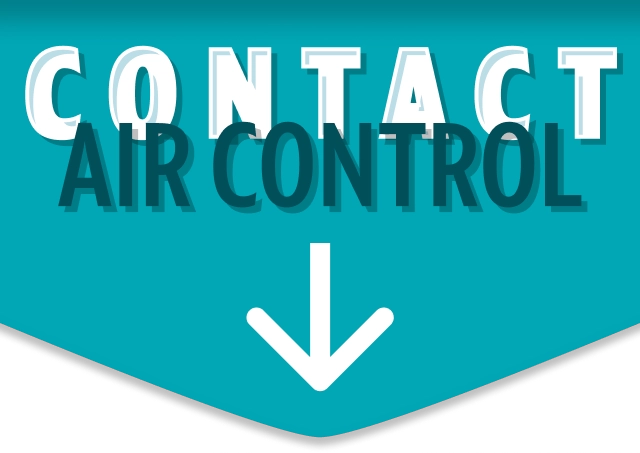If you own a home in Lake Havasu City, AZ, you should already be aware of the HVAC system’s importance. And in this area, a heat pump is a nearly perfect HVAC solution. With at least four months of the year experiencing triple-digit temperatures, their cooling capabilities make them a worthwhile investment. When you further consider that heat pumps are an ideal heating solution in mild winter climates, the value becomes clear. Here’s an overview of heat pumps and why they’re so perfect for local homes.
What Is a Heat Pump?
As its name suggests, a heat pump is a device capable of moving heat from one place to another. In an HVAC context, a heat pump is a system that operates bidirectionally, serving as a heating and cooling solution. Heat pumps are neither new nor particularly uncommon. The technology that powers heat pumps dates to 1855, and homes have relied on heat pumps since the 1960s. Odds are you already own at least two of them. One is your home’s refrigerator. It collects heat from inside its sealed compartment and expels it into the air in your kitchen. The other heat pump you likely own is your existing AC. It gathers the heat inside your home and carries it outdoors to release it.
How Does a Heat Pump Work?
Heat pumps use fundamental scientific principles to operate. The most important one is that heat energy spontaneously moves from hotter to colder substances. Heat pumps, like air conditioners, exploit that using the refrigeration cycle. It capitalizes on the relationship between the pressure, phase, and temperature of a refrigerant. Generally, when the pressure of a gaseous refrigerant increases, its temperature rises. Conversely, reducing the pressure on a gaseous or liquid refrigerant lowers its temperature.
In cooling mode, the refrigeration cycle of a heat pump begins by passing liquid refrigerant through an expansion valve. That lowers its pressure and temperature. Then, the liquid refrigerant travels to a coil in the heat pump’s indoor unit. There, a large blower fan pushes warm air from your home over the coil. That allows the refrigerant to extract heat from the air, cooling it down. It becomes the cold air that blows out of your home’s vents.
When the refrigerant absorbs enough heat energy, it boils into a warm vapor. Next, it travels back outside and through the heat pump’s compressor. This raises the vapor’s temperature and pressure until it’s far hotter than the outdoor air. From there, the hot refrigerant passes through an outdoor coil while a large fan blows outdoor air over it. That forces the refrigerant to release the heat and condense back into a cool liquid. At that point, the cycle begins again.
In heating mode, the refrigeration cycle operates the same way but in reverse. Heat pumps accomplish that using a reversing valve that sends refrigerant through the system in the opposite direction. That means the heat pump gathers heat energy from the outdoor air and transfers it into your home’s air. If you’re wondering how a heat pump collects heat from cold outdoor air, there’s a simple explanation. Even frigid air holds heat energy; it’s just that the human body doesn’t feel it. That’s due to our relatively high body temperature. Heat pumps, however, use refrigerants that can be as cold as -15 degrees Fahrenheit. They can readily extract heat from the outdoor air, which is far warmer than that.
The Advantages of Heat Pumps
The most significant advantage offered by heat pumps is their high energy efficiency. In cooling mode, heat pumps typically operate at approximately 350% efficiency. That’s comparable to a high-efficiency central AC. In heating mode, they retain that extraordinary efficiency as long as outdoor temperatures stay above 40 degrees. By comparison, the highest-efficiency gas furnace can only reach about 98.7% efficiency. In other words, heat pumps are the most efficient year-round HVAC solution you can get.
A heat pump also has some significant environmental benefits. They don’t burn any fuel and, therefore, have no direct emissions. That gives heat pumps one of the lowest carbon footprints of any HVAC solution currently on the market. Since they’re all-electric, you can also pair a heat pump with a renewable energy source to further minimize its environmental impact. For example, you can install a rooftop solar power system, which comes with the added benefit of reducing your heat pump’s operating cost. Or, you can choose an all-renewable electricity supplier for your home.
Heat pumps also qualify for significant financial incentives. One of the biggest benefits is a federal tax credit worth up to 30% of your system’s cost, capped at $2,000. Homeowners with low to moderate household incomes can qualify for point-of-sale rebates worth up to $14,000 on qualifying heat pumps. Between the two, a new heat pump installation can cost the same or less than any other HVAC solution.
If your home already has a ducted HVAC system, you should know that installing a heat pump is easy. Ducted heat pumps share a similar form factor to conventional HVAC systems. They include a single outdoor unit and an indoor unit, both of the same shape and size as a combination AC and furnace. And if your home lacks ductwork, you can still install a heat pump. In that case, you could choose a ductless mini-split heat pump. They include a single outdoor unit powering multiple wall-mounted air handlers.
Do Heat Pumps Have Disadvantages?
Heat pumps have few disadvantages and even fewer when used in Lake Havasu City. Their biggest drawback is a loss of efficiency at extremely low temperatures. At temperatures below approximately 20 degrees, a heat pump becomes less efficient than a typical gas furnace. In this part of the country, we’ve never experienced weather that cold. The record low in our area stands at 25 degrees. Therefore, low-temperature efficiency is irrelevant in this context.
The only other significant disadvantage of heat pumps is that they make your home reliant on a single system for heating and cooling. Again, since we experience so few days where you need heat here, that is largely irrelevant here. Most local homes will use their heat pump in cooling mode most of the time. The heating mode is there primarily for comfort on a handful of chilly nights each year. If you notice your heat pump isn’t working as efficiently, we can help with heat pump repair!
Your Local Heat Pump Experts
Since 1990, Air Control Home Services has offered efficient HVAC solutions in Lake Havasu City. That includes the latest models of heat pumps from Trane and Mitsubishi Electric. We’re a family-owned and operated business that’s laser-focused on customer service.
Our team of expertly trained HVAC technicians is among the best in the industry. Our Better Business Bureau accreditation and A+ rating reinforce our stellar local reputation. So does the long list of five-star reviews left by our legion of satisfied customers. So, if you’re ready for a heat pump installation in Lake Havasu City, contact Air Control Home Services today!






